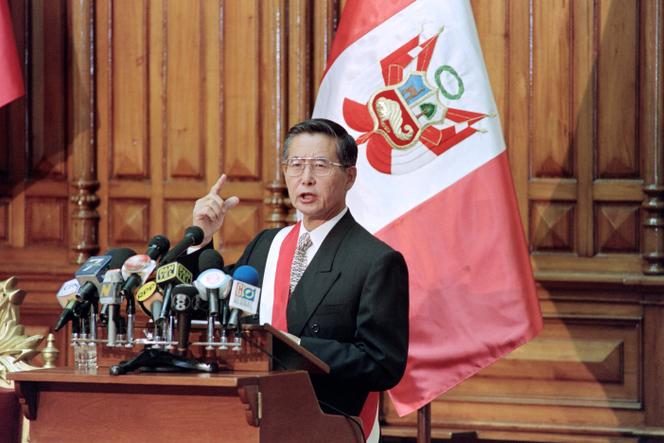


Former Peruvian president Alberto Fujimori died on Wednesday, September 11, at the age of 86, in Lima, Peru. "After a long battle with cancer, our father, Alberto Fujimori, has just left to meet the Lord. We ask those who loved him to accompany us with a prayer for the eternal rest of his soul. Thank you for so much Dad!" wrote his children Keiko, Hiro, Sachie and Kenji Fujimori on the X.
The former autocrat, who ruled the country with an iron fist for 10 years, had been released from prison nine months earlier, by the decision of the Constitutional Court in December 2023. At the time, he was serving a 25-year prison sentence for human rights violations and acts of corruption committed during his presidency, from 1990 to 2000.
Fujimori is undoubtedly one of the most controversial figures in Peru's history. Hated by some, idolized by others, his fate continues to unleash passions in a country deeply divided over its former leader.
Born in Lima on July 28, 1938, this son of Japanese immigrants was a complete unknown when he ran for the 1990 presidential election. A former rector at La Molina agrarian university, he had no political experience and, up against the million-dollar campaign of writer Mario Vargas Llosa, who was backed by right-wing forces, his candidacy seemed doomed. But the agricultural engineer surprised many by reaching the second round of the April 1990 election. Focused on the poorest neighborhoods, his campaign and his outsider image, opposed to traditional politicians, resonated with voters.
At the time, Peru was in the midst of an economic crisis. Inflation had reached 7,500%, while the armed conflict that had begun in 1980 between the army and the left-wing guerrillas of the Shining Path and the Tupac Amaru Revolutionary Movement was escalating and there was no solution in sight. Against this backdrop, the candidacy of the now-popular "Chino" ("Chinese," in reference to his Asian origins) aroused a wave of hope among Peruvians and, against all expectations, he was elected president with the support of left-wing parties.
Two weeks after his inauguration, Fujimori surprised his voters by announcing a shock economic policy to pull the country out of the crisis. Unexpectedly, the measure was even more drastic than the austerity proposed by his opponents during the campaign, which he had strongly criticized. The "Fuji shock" marked the new president's first 180-degree turn. Another controversial decision followed: the forced closure of Congress on April 5, 1992, described as a "self-coup." This decision was popular, but completely undermined democratic processes. The opposition decried it as a dictatorship, but to no avail. In the aftermath, Fujimori convened a Constituent Assembly to draft a new fundamental law, approved by referendum. This constitution limited the state's role in favor of private enterprise.
You have 70.76% of this article left to read. The rest is for subscribers only.
